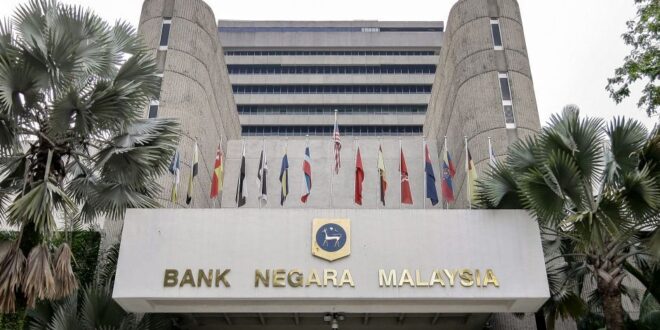PETALING JAYA: A co-payment option, which will be offered by insurance and takaful providers starting Sept 1, will not apply in emergency treatment or those who go to government health facilities. Neither would it apply to those who seek outpatient healthcare for follow-up in cases of critical illnesses such as cancer or kidney dialysis, says Bank Negara.
The statement from the central bank came about following concerns raised about the implementation of co-payment for medical and health insurance and takaful products.
It explained that insurers and takaful operators must offer consumers an option to buy medical and health insurance and takaful products with co-payment features from Sept 1.
“They can also continue to offer these products without co-payments feature to new consumers,” it said.
However, consumers who already have these products without a co-payment feature could continue with them when the policies are renewed later.
According to Bank Negara, the option of co-payment means that the public has a choice to opt for lower cost products to suit their needs and affordability.
“These products with co-payment features are not new in the Malaysian market.
“It has been observed that the premiums for such medical and health insurance and takaful products with co-payment features are 19% to 68% lower compared to similar products without the feature.”
The central bank said the companies may also use its discretion to waive co-payments during financial hardship or extenuating circumstances faced by a policy owner or takaful participant.
Bank Negara said that insurance and takaful providers are expected to offer a range of co-payment levels to cater to the buyer’s financial needs and circumstances.
Such co-payments will also be subject to a maximum cap set by the providers to limit the additional expenses of the policy holders.
“A greater take-up of co-payment of these products, over time, aims to help contain medical cost inflation in Malaysia by controlling the over-consumption of health services.”
Last year, it said that Malaysia recorded an inflation of medical cost of 12.6%. This is much higher than the global average of 5.6%.
The co-payment feature aims to promote more sustainable and affordable products in view of the rising medical costs, the central bank said.
Last Wednesday, Bank Negara issued a statement to dispel misleading social media posts on the matter.
Furthermore, the co-payment will only be imposed when claims are made by a policy holders, it said.
It also encouraged consumers to be more prudent in using healthcare services which, in turn, lower fraudulent medical claims and contain medical cost inflation that rose by 36.3% between 2020 and 2022.
“In the longer term, the co-payment feature aims to ensure that the cost of medical insurance and takaful remains affordable.”
Deputy Finance Minister Lim Hui Ying spoke about the co-payment in the Dewan Rakyat last week, saying that it was one of the ways to deal with the increases in premiums or contributions for such products.
However, the Galen Centre for Health and Social Policy has cautioned that the co-payment option could impact the expenditure of Malaysian households.
“If an insured patient receives a RM50,000 hospital bill, a 5% co-payment means that the patient has to pay RM2,500 in cash out of pocket,” the centre said.
 BeritaKini.biz Berita Viral Terkini di Malaysia
BeritaKini.biz Berita Viral Terkini di Malaysia





